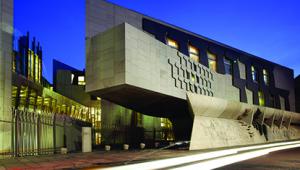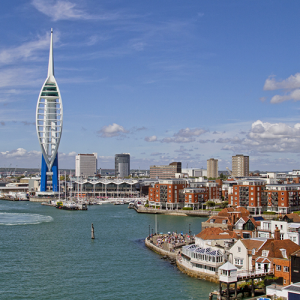By Keith Aitken in Edinburgh | 10 March 2014
Labour should dump plans to offer Scots another tranche of fiscal devolution and focus on building a better Scotland with the powers already at Holyrood’s disposal, one of the party’s most senior MSPs has told Public Finance.
Ken Macintosh, who unsuccessfully contested the party leadership against Johann Lamont in 2011 and was later fired by her as shadow finance secretary, criticised Scottish Labour’s plans to devolve income tax if Scots reject independence at September’s referendum. He said such suggestions were wrong in principle and potentially harmful to the Scottish economy.
‘Of all the taxes to devolve, I think it’s the wrong one,’ Macintosh said.
‘The average amount of onshore tax raised in Scotland – leaving aside oil revenues – is the same as across the UK.
We pay our way in taxes. But the proportions of tax are not the same. We pay far less in income tax and far more in the spending taxes: especially, unfortunately, on alcohol, cigarettes and gambling. So, if you are to devolve a tax, you are devolving the wrong one.
‘Income in Scotland is generally more equally distributed. The majority of high-income and high-wealth individuals live around the Southeast of England. So, if you regard income tax as a redistributive instrument, you would be effectively opting out of redistribution.’
He added: ‘Over the long term, you would be reducing your income tax base in Scotland. As the economy grows, the wealth of the Southeast will grow faster, and so you are missing out.’
The income tax plans were outlined last year in an interim report by a special Labour Party commission, and a follow-up is due for party conference in late March. But there are growing signs of a backlash, with Ian Davidson, who chairs the Westminster Scottish Affairs committee, warning that devolving income tax would spell the end of the Barnett formula for safeguarding Scotland’s share of UK spending.
Macintosh, who is close to Shadow Cabinet member Jim Murphy, did not share Davidson’s certainty that Barnett would be dismantled but admitted it would be affected. ‘There would be more pressure to review the settlement,’ he told PF. That was why Holyrood had never attempted to use its existing power to vary the basic rate by up to 3p.
He resisted the idea that the same case could be made against the measures in the 2012 Scotland Act, which Labour promoted, to devolve control over the equivalent of 10p on the basic rate.
‘We absolutely should have the possibility of using these powers,’ he said. ‘But you are confusing the ability to use them with the desirability of using them. At the moment I think it would be undesirable, and this is another reason for not devolving income tax. If you devolve income tax there’s a risk that people think you’re devolving it to increase it.’
He saw potential merit in devolving some powers from Holyrood to local authorities, for example over Housing Benefit and some work-related training programmes. So, was there a more pressing need for devolution within Scotland than within the UK?
‘I wouldn’t describe it as a pressing need for either,’ Macintosh said.





















